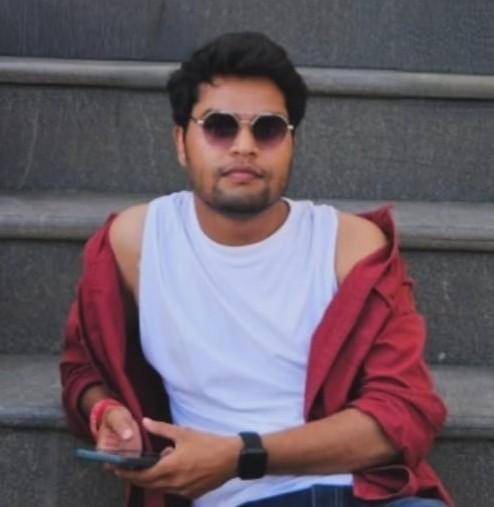The public rift between J.K. Rowling and Emma Watson traces back to 2020. Rowling published an essay discussing her perspective on sex and gender, which many interpreted as critical of certain transgender ideologies.
Emma Watson, widely known for her role as Hermione Granger in the Harry Potter franchise, responded by publicly affirming support for transgender rights. Her statement emphasized that transgender individuals “deserve to live their lives without being constantly questioned or told they are not who they say they are.”
This marked the beginning of a disagreement that has persisted over the years, with fans and media closely monitoring both Rowling and Watson’s comments.
Rowling’s Recent Statement
On September 29, 2025, J.K. Rowling issued a direct response to Emma Watson, describing Watson as “ignorant of how ignorant she is.”
In her statement, Rowling clarified that she respects her former co-stars’ right to their beliefs but takes issue with public criticism of her views. Rowling specifically mentioned that Daniel Radcliffe and Rupert Grint also support gender identity ideology but have criticized her publicly, which she felt was unfair.
Rowling emphasized that her intention has never been to harm or marginalize others, but she continues to defend her right to express her beliefs.
Emma Watson’s Position
Emma Watson has consistently supported transgender rights and has spoken publicly about the importance of inclusion. She has maintained that her criticisms of Rowling’s views are rooted in concern for marginalized communities rather than personal attacks.
Watson has also reiterated that she respects Rowling as a writer and the creator of the Harry Potter universe, highlighting that their professional relationship remains separate from ideological differences.
The Role of Co-Stars
Daniel Radcliffe, Rupert Grint, and other cast members have also weighed in over the years. Radcliffe, in particular, criticized Rowling’s comments as “hurtful to trans people,” while Grint has stated that he “supports transgender rights unequivocally.”
Rowling’s recent response addressed these reactions, noting that while she understands their perspective, she disagrees with the framing and public nature of their criticisms.
Public Reaction and Media Coverage
The renewed discussion sparked by Rowling’s response has divided public opinion. Fans of the Harry Potter franchise have taken to social media, some defending Rowling’s right to express her views, while others side with Watson and her co-stars in advocating for transgender inclusion.
Media outlets, including The Guardian, CNN, and BBC, have reported extensively on the exchange, highlighting the broader cultural debate surrounding free speech, artistic legacy, and social responsibility.
Implications for the Harry Potter Legacy
This public disagreement between Rowling and Watson, along with commentary from Radcliffe and Grint, has raised questions about the ongoing cultural legacy of Harry Potter.
While the franchise remains immensely popular, debates surrounding its creator have influenced public perception. Rowling’s literary contributions continue to be celebrated, but discussions around gender identity have complicated the narrative for some fans.
Rowling’s Perspective on Free Expression
Central to Rowling’s response is the principle of free expression. She argues that her right to share her beliefs should not be compromised, even in the face of criticism from colleagues or fans.
Rowling maintains that her advocacy stems from concerns about women’s rights, privacy, and societal norms, and she insists that disagreement should not equate to vilification.
Broader Cultural Context
The dispute between Rowling and Watson reflects a larger societal conversation about free speech, cancel culture, and inclusion. Public figures often navigate a delicate balance between expressing personal beliefs and responding to advocacy for marginalized groups.
This tension has been particularly pronounced in the entertainment industry, where personal opinions can impact professional relationships and fan engagement.
What This Means for Fans
Fans of the Harry Potter series are faced with complex questions about separating art from the artist. While many continue to enjoy the books and films, the ideological differences between Rowling and her co-stars have prompted discussions about ethical consumption, representation, and personal values.
For some, Watson’s advocacy reinforces the importance of inclusivity in media. For others, Rowling’s insistence on free expression highlights the complexity of navigating deeply held beliefs.
Moving Forward
Both Rowling and Watson have indicated that they will continue their respective advocacy work and professional projects independently. While dialogue between them appears unlikely in the near future, their public statements ensure that the conversation around gender, rights, and artistic expression will persist.
Also Read : Kathy Bates in Matlock 2024 – Emmy-Worthy Comeback or Network TV’s Finest Hour?
FAQs
Q1: What caused the rift between J.K. Rowling and Emma Watson?
A1: The disagreement began in 2020 when Rowling published essays discussing her views on sex and gender, which Watson publicly criticized in support of transgender rights.
Q2: How did Rowling respond to Emma Watson in 2025?
A2: Rowling described Watson as “ignorant of how ignorant she is” while defending her right to express her beliefs.
Q3: Have other Harry Potter co-stars commented?
A3: Yes, Daniel Radcliffe and Rupert Grint have publicly supported transgender rights and criticized Rowling’s comments.
Q4: Does this affect the Harry Potter books or films?
A4: While the books and films remain popular, the public debate has influenced how some fans perceive the franchise.
Q5: What is Emma Watson’s stance?
A5: Watson supports transgender rights and emphasizes inclusion while maintaining respect for Rowling’s professional achievements.
Q6: Why is this dispute significant?
A6: It highlights the broader societal conversation about free speech, inclusivity, and the responsibilities of public figures in shaping cultural dialogue.
Join our WhatsApp channel for more updates and information about celebrities and entertainment

I’m Atul Kumar, founder of Cine Storytellers and an entertainment creator with 5+ years of experience. I cover films, celebrities, music, and OTT content with a focus on accurate, ethical, and engaging storytelling. My goal is to bring readers trustworthy entertainment news that informs, inspires, and goes beyond gossip.
Discover more from Cine Storytellers
Subscribe to get the latest posts sent to your email.
